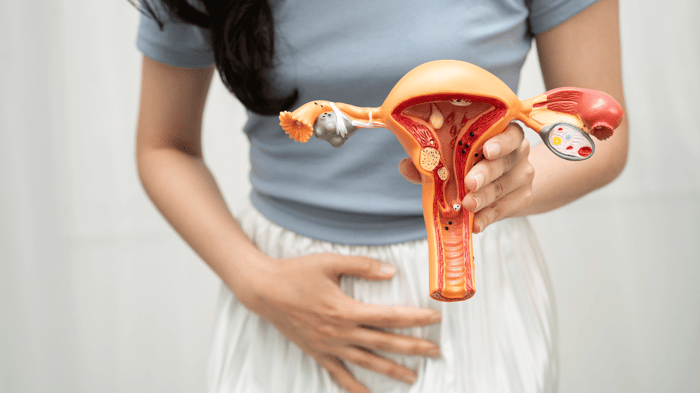Menopause is often portrayed as a period of inevitable decline, but it’s actually a natural transition in a woman’s life that signals new opportunities for self-awareness and empowerment. While symptoms like hot flashes, sleep disturbances, vaginal dryness, and mood changes can be challenging, they are not just inconveniences—they are interconnected signals from the body that reveal how our physiology is adjusting.
This article explores how to manage multiple menopause symptoms naturally, offering evidence-based strategies that integrate lifestyle, nutrition, mind-body practices, intimacy, and non-hormonal interventions. By understanding your body holistically and using thoughtful, personalized approaches, you can reduce discomfort, enhance vitality, and maintain your quality of life during this life stage.
Understanding Menopause and Its Symptoms
What Happens During Menopause
Menopause marks the end of a woman’s reproductive years, typically occurring between ages 45 and 55. It is characterized by a gradual decline in estrogen and progesterone levels, hormones that regulate reproductive function and influence numerous bodily systems. The reduction in estrogen impacts vaginal moisture, libido, bone density, cardiovascular health, and even brain function, making symptom management a multidimensional challenge.
Decoding Physical Signals
Menopause manifests through diverse physical changes that often appear disconnected: hot flashes, night sweats, fatigue, and joint stiffness. However, these symptoms frequently share underlying hormonal and metabolic patterns. For instance, declining estrogen affects thermoregulation, vaginal mucosa, and even skin elasticity simultaneously.
Instead of treating each symptom in isolation, observe patterns. Does a hot flash appear after caffeine intake? Does fatigue worsen with disrupted sleep? Journaling these observations helps you identify triggers and target interventions effectively.
Emotional and Cognitive Clues
Mood swings, irritability, anxiety, and brain fog are more than “side effects.” They reflect neuroendocrine shifts and can intensify physical discomfort. Understanding these emotional patterns allows women to implement early coping strategies—mindfulness, journaling, or structured stress-reduction practices—before stress compounds symptoms.
Integrative Nutrition and Botanical Allies
Food as Functional Medicine
Nutrition isn’t just fuel; it can modulate menopausal physiology. Phytoestrogens in soy, flax, and legumes may reduce hot flashes and support bone health. Anti-inflammatory foods—berries, leafy greens, omega-3-rich fish—can calm systemic inflammation, which underpins joint pain and fatigue. Pairing foods for enhanced absorption (like vitamin C with plant iron) amplifies benefits.
Next-Gen Botanical & Internal Support
Emerging evidence supports non-hormonal botanicals and internal supplements in managing multiple symptoms. Slippery elm bark, hyaluronic acid, amino acids, and probiotics can improve mucosal hydration, tissue elasticity, and digestive balance. These natural interventions complement dietary strategies, providing layered, internal support rather than temporary surface relief.
Mind-Body Strategies
Stress Reduction and Emotional Balance
Menopause can amplify stress and emotional sensitivity. Mind-body practices such as meditation, yoga, and deep breathing exercises have been shown to reduce cortisol levels, helping regulate mood and decrease the severity of hot flashes. Mindfulness encourages women to observe physical and emotional sensations without judgment, fostering resilience during hormonal fluctuations.
Cognitive and Behavioral Approaches
Journaling, cognitive-behavioral techniques, and therapy can be powerful tools to manage anxiety, irritability, and low self-esteem. By reframing negative thoughts about aging or physical changes, women can maintain confidence and engage more fully in social and intimate relationships.
Enhancing Intimacy and Connection
Physical discomfort and mood shifts can challenge intimacy, but emotional connection can be maintained through communication and non-sexual closeness. Sharing time together, discussing preferences, and exploring non-invasive forms of physical touch support sexual health and emotional intimacy. These strategies strengthen relationships while minimizing pressure around sexual performance.
Creating a Comprehensive Daily Routine
Combining Nutrition, Exercise, and Mind-Body Practices
The key to managing multiple menopause symptoms naturally lies in integrating lifestyle strategies. A balanced diet, consistent exercise, hydration, mindfulness, and emotional support reinforce each other, producing cumulative benefits. Women who embrace this holistic routine often report fewer hot flashes, improved sleep, reduced vaginal dryness, and more stable moods.
Tracking Symptoms and Adjusting Approaches
Keeping a menopause journal or using symptom-tracking apps can help identify patterns and effective interventions. Tracking allows women to fine-tune their nutrition, exercise, supplementation, and sleep strategies for optimal results.
Holistic Integration for Long-Term Wellbeing
By addressing physical, emotional, and relational aspects simultaneously, women can experience long-term improvement in quality of life. Preventive care, self-awareness, and consistent routines are essential for sustaining benefits and maintaining overall health during menopause.
Frequently Asked Questions (FAQs)
Can multiple menopause symptoms be managed without hormones?
Yes, many women successfully reduce hot flashes, night sweats, and vaginal dryness through lifestyle interventions, nutrition, non-hormonal supplements, and mind-body practices. While severity varies, a combined holistic approach can often provide substantial relief.
Which natural remedies work best for hot flashes and night sweats?
Herbs like black cohosh, red clover, and phytoestrogen-rich foods may reduce symptom frequency. Lifestyle adjustments, including cool sleep environments and stress management techniques, complement these natural remedies effectively.
How long does it take to notice improvements with non-hormonal interventions?
Results depend on the symptom and strategy. Dietary changes and hydration can provide benefits in weeks, while herbal supplements and internal hydration strategies may require several months for optimal effect. Consistency is key.
Are there any safety concerns with herbal supplements?
Most non-hormonal supplements are safe when used appropriately. Women with preexisting conditions or on medications should consult their healthcare provider before starting new supplements to ensure safety and efficacy.
Can lifestyle changes improve sexual health and vaginal dryness naturally?
Absolutely. Internal hydration supplements, regular exercise, pelvic floor training, proper nutrition, and topical moisturizers collectively support vaginal tissue health and enhance sexual comfort.
Empowering Women to Manage Menopause Naturally
Managing multiple menopause symptoms naturally is achievable through a combination of lifestyle strategies, non-hormonal supplements, mind-body practices, and holistic self-care. Addressing physical discomfort, emotional well-being, and intimate relationships concurrently allows women to regain confidence, comfort, and vitality during this life stage.
Women are encouraged to explore natural solutions, track symptom improvements, and seek professional guidance when needed to tailor interventions safely and effectively. By embracing a comprehensive, proactive approach, it is possible to navigate menopause with resilience, comfort, and a renewed sense of well-being.











